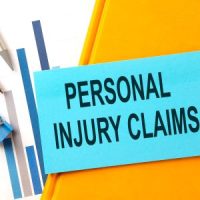Preparing For Your Personal Injury Mediation

In Florida, parties involved in a personal injury case can voluntarily decide to resolve the case through mediation. Also, the court can require parties to go through mediation before proceeding to trial. If you have voluntarily decided to try resolving your Florida personal injury case through mediation, or the court has ordered mediation, you should know that mediation can be a wonderful tool for resolving a personal injury case. For example, mediation can help you save time and money. Also, with mediation, you remain in control as opposed to when your personal injury case is handled in court.
Before mediation, you must prepare. When you prepare, you increase your chances of achieving a successful outcome from the mediation process. Below are some of the steps you can take to prepare for your personal injury mediation;
Step #1: Take Time to Understand the Mediation Process
The first thing you should do to give your personal injury case the best possible chance for a successful mediation is to take time to understand the mediation process. Take time to understand what to expect so you can avoid anxiety during the mediation process. For example, do you know who you can expect to be present during mediation sessions? Some of the participants in the mediation include you (the plaintiff), your attorney, the defendant’s attorney, and an insurance adjuster.
Step #2: Discuss Expectations With Your Attorney
Going into the mediation process with a set figure in your mind might not be a good idea. But it is a good idea to talk with your attorney about reasonable expectations for a settlement range.
Step #3: Gather Evidence
During the mediation process, the mediator will ask for supporting evidence from you and the defense. Therefore, ensure you gather as much evidence as possible before your mediation session. For example, have photos of your injury ready. Also, if you recently got a medical opinion, ensure you have that record ready before your mediation session. Remember, just saying that an injury has impacted your life will not suffice.
Step #4: Prepare Your Body for the Mediation Session
During mediation, you will be seated. However, it is almost guaranteed that you will be physically exhausted by the end of the session. Mediation can also be an emotionally draining process. For these reasons, you should ensure you get enough rest the night before a mediation session. On the day of the mediation session, ensure you have a good breakfast and lunch (when you have an afternoon session). Also, ensure your mind is clear when going into a mediation session. Going into a mediation session with your mind distracted will only make the session more emotionally draining.
Step #5: Choose What to Wear Early in Advance
Sometimes, a personal injury victim will meet the insurance adjuster for the first time at the mediation. It is crucial that you make a good impression on the insurance adjuster. The insurance adjuster has the most say on how much the insurance company will offer you. And although it might not be fair, a huge part of the insurance adjuster’s decision may be based on how they think you will be as a witness in court. A huge part of the adjuster’s decision may be based on whether or not they believe a jury would like and favor you. Therefore, it’s vital that you dress appropriately during the mediation.
There are no hard and fast rules on what you should and should not wear to a mediation session, but it is often advisable to dress the way you would for an interview. But if wearing something you would wear to an interview would be uncomfortable because of your injuries, just keep in mind that the goal is to be respectful.
Personal Injury Mediation Mistakes You Should Avoid Making
During your personal injury mediation, it is vital that you avoid making certain mistakes that can jeopardize your case. First, do not withhold information that could help with settling the case. For example, you might be tempted to save “good” information for a trial, but remember that the trial might not occur. Second, do not personally attack the opposing counsel. Persuasion is much better than personal attacks when you are trying to achieve a good outcome. Last, do not give up early. For example, an impasse does not mean your case cannot settle. You need to exercise patience, work with your attorney and the mediator and allow the process to unfold.
Contact a Naples Personal Injury Attorney
If you need help recovering fair compensation in your personal injury case, contact our qualified and dedicated Naples personal injury attorneys at The Law Offices of Marc L. Shapiro. We have years of experience handling personal injury cases both outside of court and in court. You can reach us by calling 239-329-8360 or filling out our online contact form.
Source:



